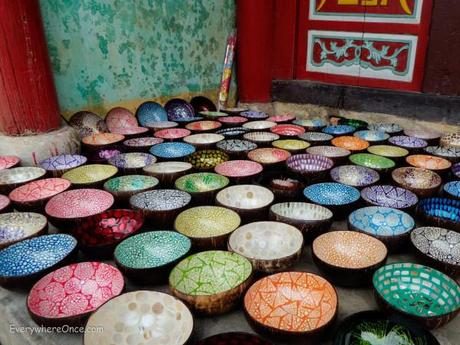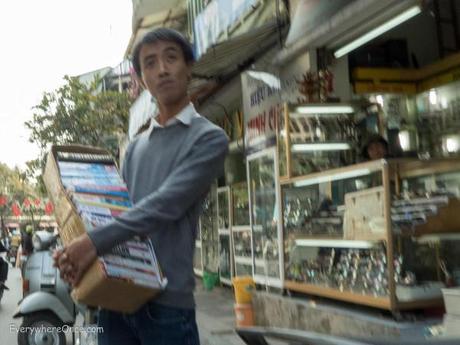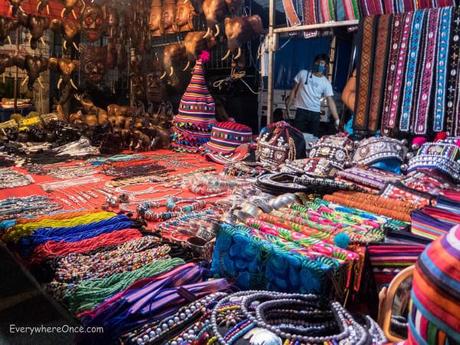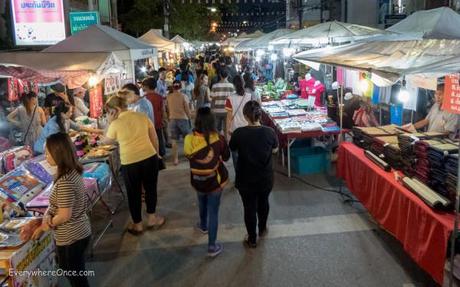
A seemingly travel-wise road warrior once told us to “never accept the first price you’re offered in South East Asia. Everything here is negotiable. I just don’t understand why some people won’t haggle.”
We’ve come to a bit of a different conclusion. Perhaps a story is the best way to explain.
Feeling pretty jazzed after a jolt of sweet and chocolaty cà phê sữa nóng, I was dodging scooters and shoulder poles when I caught a snippet of conversation between a shaggy-haired Aussie and a vendor selling books from the back of his bicycle. They were haggling over a Lonely Planet guide to Vietnam, which was appropriate enough considering this was taking place on the streets of Hanoi.
“8,000” I hear Long Locks offer.
“Can you pay a little more?”
“No,” responds the Aussie, who then turned and walked away.
Fair enough. That’s how negotiations go. In a free exchange each side is entitled to name their terms and break off talks if those conditions aren’t satisfied. The details of this particular trade, though, are instructive.
The Lonely Planet book in question retails on Amazon for $20. The ones you see on the streets in Vietnam are almost certainly pirated, so they shouldn’t cost nearly that much. But still, the retail price gives you a fair idea of how much the content is worth.

In this case Shaggy Hair set his drop-dead price at 8,000 VND, which translates to about forty U.S. cents. That’s certainly his right, but it helps to put some of this haggling into perspective.
While we can’t know at what price the seller would have parted with this particular book, we do know the stakes of the negotiations. The two were haggling over pennies.
And that, in a nutshell, is why we haven’t really bothered to haggle over things.
Mostly, it just isn’t worth our time. If Golden Curls really wants a Vietnam guidebook he now has to try to buy one from someone else. That means not only finding another vendor carrying the book but also investing the time trying to work him down to the desired price. And if that fails, he then has to spend more time going through the whole process yet again – all to save ten or fifteen or maybe thirty cents.

Quite frankly, I’d gladly pay an extra thirty cents if it means freeing up time to do something other than shopping around for the best deal – like maybe enjoying the book I was hoping to buy.
That isn’t to say we never bargain or that we accept whatever price is being offered. Some vendors really do go overboard, like the guy in Guatemala who tried to sell us a small packet of tissues for the same price we had just paid for two three-course lunches and drinks. Um, no.
Mostly we try to keep things in perspective and in proportion. The first couple of days in a new area we’ll get a feel for what things cost. If we pay a certain amount for a meal, we’re not going to pay twice that for a bottle of water or ten times that amount for a short taxi ride.
But as long as the prices we’re being quoted are consistent with what other things cost and as long as we’re getting good value for the money we spend, we don’t feel the need to niggle someone down to the last dime. There’s simply no joy for us in beating a hardworking vendor out of a buck.
And maybe that is why we haven’t had the negative experiences so many other travelers have reported in Vietnam. I can’t say for certain, but it seems reasonable that if you’re a westerner trying to drive hard bargains with locals over pennies, you may end up buying yourself some resentment as part of the trade.

It’s possible, too, that trying to get a rock-bottom deal in every exchange might make some travelers a bit hypersensitive to fairly insignificant differences in price. We don’t know whether we could have scored a cheaper meal than the 55,000 VND ($2.61 US) we paid for two lunches by trying to negotiate. But we don’t care either. We had a great meal at a price we were more than comfortable paying.
More importantly, we left feeling happy with the experience. Had we cared that the guy sitting next to us paid fifty cents less for exactly the same dish we could have easily worked ourselves up into a rage over the injustice. I know some people do.
But that sounds an awful lot like Oscar Wilde’s definition of a cynic: someone who knows the price of everything and the value of nothing.
We make an effort to focus on value when we travel and are more than happy to let the nickels and dimes fall where they may.

